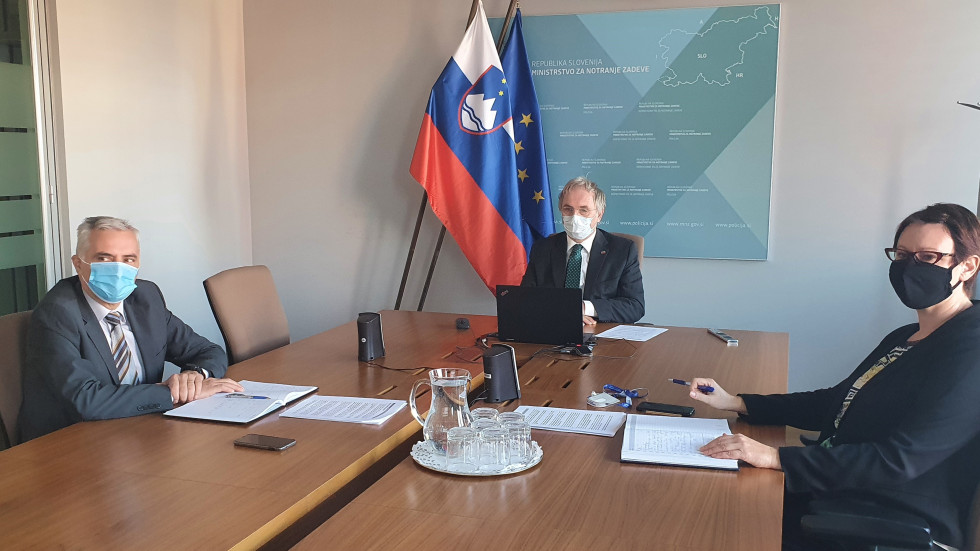Minister Hojs: Schengen is one of EU's greatest assets
At the meeting, the European Commission focused mainly on the shortcomings of the existing Schengen system and on finding common solutions to address these gaps as soon as possible. In this strategic debate, the participants expressed their wishes and expectations as to how the Schengen system should develop in the future in order to be more resilient and responsive to potential new crisis situations, threats and pressures.
»Schengen is one of the major assets of the European Union, so I am pleased that today we can openly discuss the most pressing issues in connection with Schengen and express our expectations for a gradual reform of the existing system,« said Minister Hojs in his introduction. The reform should be based on maintaining the integrity and reinforcing the system, making it more robust and thus responsive to potential challenges.

Minister Aleš Hojs with co-workers at the videoconference
Effective control of the EU’s external border as part of a comprehensive and effective migration policy is crucial for the proper functioning of the Schengen system. We therefore look to the new Pact on Migration and Asylum with high expectations and with a certain degree of caution. As the pact will not come into existence tomorrow, we urgently need some operational solutions today. Therefore, our priority must be to ensure better cooperation with third countries and countries of origin as soon as possible and, above all, to facilitate the effective return of all persons not eligible to stay in the EU," stressed the Minister.
Frontex has an important role to play here. We need to strengthen its return capacities and focus on the full establishment of standing corps to assist in the control of external borders. “Frontex will have to deploy its units to the most critical sections of the external border, including the Western Balkans region. We expect Member States to voluntarily agree to deploy these units to their external borders in accordance with the applicable legislation. However, should Member States oppose such deployments despite the critical circumstances, we will insist on changing the legal basis to make the admission of units mandatory," said the Minister.
In the discussion, the Minister also stressed the importance of ensuring free border crossing, and pointed out the problem of extending border controls at the EU’s internal borders. “Before opting for border controls at internal borders, countries should seek to apply all alternative measures, such as joint police patrols, cross-border exchange of information and other compensatory measures,” added the Minister.
Finally, he touched on the effectiveness of the Schengen evaluation mechanism. “We believe that Member States should take a more responsible approach to the implementation of the measures resulting from this mechanism and actually implement them. However, consideration should also be given to making it compulsory to implement recommendations of a purely professional nature.”
